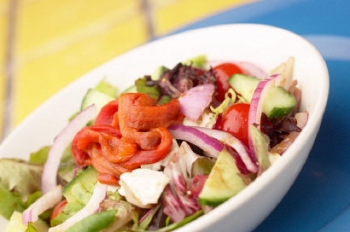Dietary Guidelines for Testosterone Deficiency

Testosterone, that incredibly important male hormone that is associated with increasing muscle bulk, improving energy levels, increasing libido, and assisting in the development and maturation of sex organs and secondary sexual characteristics, begins a natural decline as a man grows older. Typically, it goes down by 1% every year as a man turns 40. Low testosterone can have a detrimental impact on the body; and increasing belly fat, poor sex drive, and constant fatigue are the most obvious signs. But eating a nutritious and well-balanced diet is the easiest way to manage testosterone deficiency and overcome any undesirable effect it has.
Dietary Guidelines for Testosterone Deficiency
• Zinc is an important trace mineral that’s important if you want to maintain optimum testosterone levels. Oysters, crab, baked beans, and beef shank and liver are excellent sources of zinc. Additionally, breakfast cereals are also fortified with zinc since most diets lack this essential element.
• Testosterone is synthesized from cholesterol, and your body requires a certain amount of fats to produce cholesterol. But remember to distinguish the good fats from the unhealthy ones. Saturated fats aren’t good for the system, because they can stiffen arteries and induce heart disease. So stay away from margarine, butter, and junk or fast food. But the healthy fats, such as the ones found in fatty fish (salmon/mackerel), olive oil, peanut oil, and avocados is good for heart health and to maintain healthy cholesterol levels.
• A fistful of nuts such as almonds, pecans, pistachios, and walnuts can boost your testosterone production. Eat them as is, or sprinkle them over your morning cereal.
• Vitamin D isn’t just good for strong bones, it’s also necessary for healthy testosterone levels. If you can’t spend 20 minutes out in the morning sun, consume dairy products and breakfast cereals fortified with this vitamin.
• Ageless Male supplement has a beneficial influence on low testosterone levels. It contains Testofen, which is nothing but standardized fenugreek seed extract, a powerful plant product that boosts the body’s natural testosterone production. It also contains zinc, magnesium and essential vitamins that improve reproductive and sexual health.
• Cabbage, broccoli, cress, bok choy, arugula, radish, Brussels sprouts, and cauliflower, which are collectively known as cruciferous vegetables contain compounds that reduce estrogen and increase testosterone.
I’m sure if you follow these tips above, your testosterone levels will be back to normal. Of course, don’t expect miracles overnight. It’ll be a few days before you see results. It’s alright to use supplements as long as you know what they contain and you’re fully aware of their aftereffects. For instance, Ageless Male supplement reviews indicate that these pills are totally safe and possess no side effects. Along with diet, keep your weight in check, and engage in moderate exercise daily, and you’ll soon notice a significant increase in your testosterone levels and overall health.
